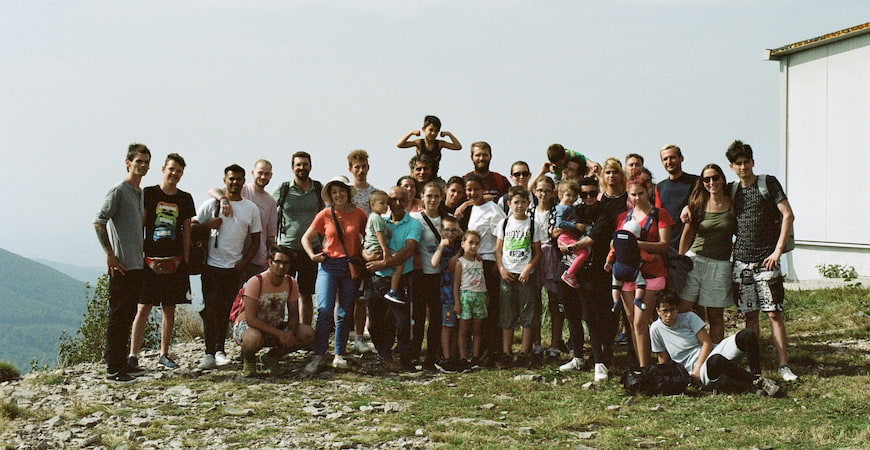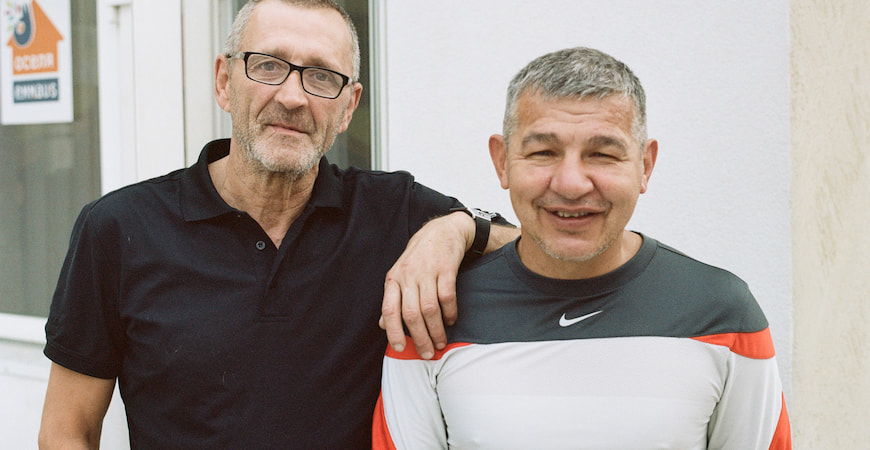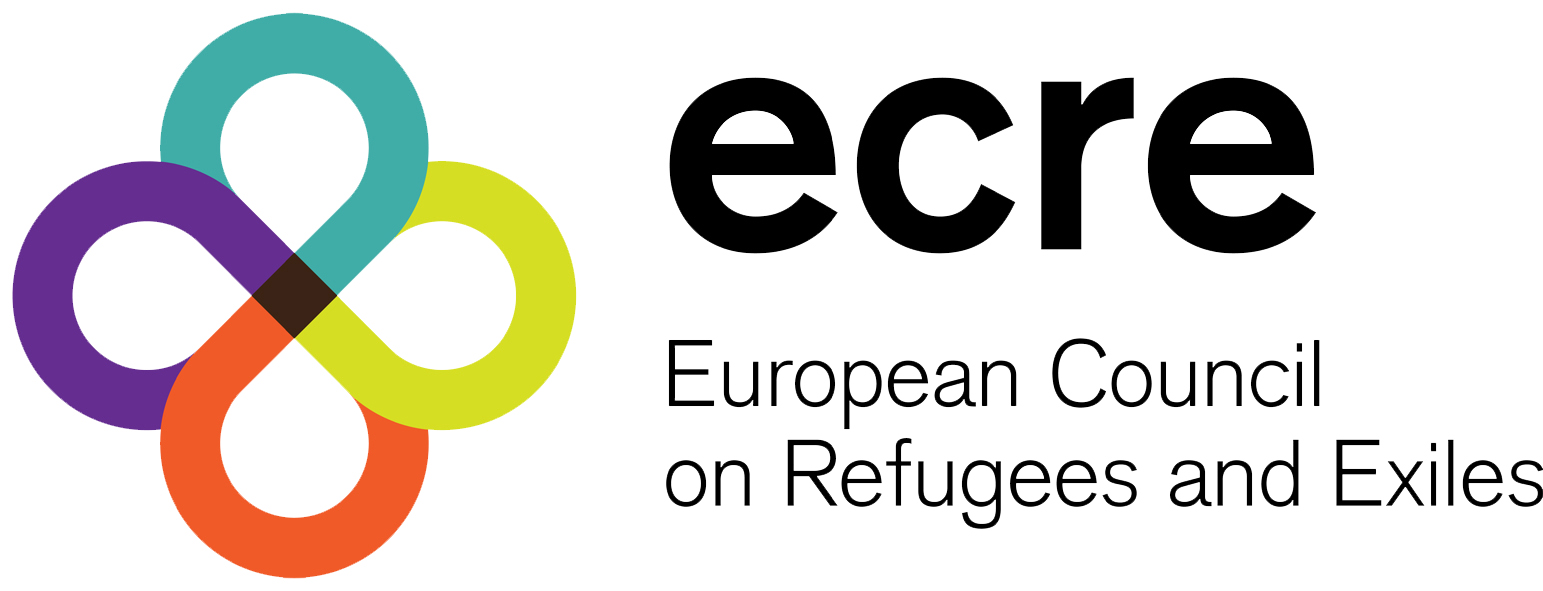Marie Tixier
Fighting against modern slavery: victory at last!
In Emmaus groups, we are familiar with migration journeys of companions who have come from afar, enduring violence and exploitation at different stages along the way. These journeys are sometimes within the European continent, particularly for young Romanians welcomed by Emmaus Satu Mare, who were in care as children. This is Mariana’s story, told to us by Jean-Philippe, president of Emmaus Satu Mare.
June 2009, Satu Mare. Mariana is about to finish secondary school. She’s 19 and has lived in an orphanage with her twin sister Tunde since they were children. Tunde has had to repeat a year and can stay for another year at the children’s home. But for Mariana, finishing her studies means that she will no longer be looked after. A teacher introduces her to “Doamna Irina” (Mrs Irina), who is also Romanian, and she offers to take her to Italy. She will earn money and will be part of the family until she has earned enough to live her own life. A job, money and a family? This is everything that Mariana has never had. She happily accepts.
August 2009, Rome. Once in Italy, Mariana quickly becomes disillusioned. “Doamna Irina” took her passport from her as soon as they left Romania. In terms of family life, she is forced to eat and wash herself on the balcony with two other young girls, who also come from Satu Mare orphanages. She works hard, from 4am every morning until late at night, doing cleaning jobs in residential homes, pharmacies and notary’s offices; all appear to be oblivious to her plight. No weekends or Sundays off nor public holidays. In return, she is on the receiving end of insults on a daily basis (gypsy, darkie, dirty, etc.) And is threatened every day that she will be put out on the street if she makes even the slightest wrong move.
End of 2012, Satu Mare. Tunde, Mariana’s twin sister, has been wandering from place to place and has finally come to Emmaus. One day, she tells us her sister’s story, as she hardly ever hears from her. We ask social services, who offer a reassuring answer. And we tell Tunde: “Mariana should go to the police if she is the victim of an offense”. Ten years on, we have to admit that it was easier said than done… And that in terms of access to rights, theory alone is no guarantee that anything will be done in practice, but that’s no reason to give up.
October 2013. Tunde has just received a call from Mariana, who invites her to come to Rome “on holiday”. Of course, we are very concerned, but Tunde, who hasn’t seen her twin sister for four years, is ready to jump on the next bus to Rome. In the end, we decide to go with her. We turn up at the address given, we meet Irina, the landlady, in the bar that she runs at the time, and who confides in us with a great deal of cynicism that “it’s so difficult to get the youngsters from the orphanage to work properly, but luckily we don’t have to pay them”. The following day, we come back to get Tunde, who has just spent 24 hours with her sister at Irina’s family home. Mariana wants to leave with us, but she is prevented from doing so by Irina, who piles on the emotional blackmail and unveiled threats. We set off again feeling very down, after promising Mariana that we will find a solution.
We refer the matter to the Romanian Anti-Trafficking Agency, which, as luck would have it, has no jurisdiction outside Romania! They pass on our report to the Romanian embassy in Italy, which in turn says it is not competent to deal with the case, and forwards it to the Italian police, who do nothing.
January 2014. Mariana phones us using the caretaker’s phone in a building where she cleans and asks us to come to get her. We set off for Rome again, turn up once again at the family’s bar and this time we meet Irina’s son who instantly starts throwing punches at us. Increasingly concerned about Mariana, we turn to Emmaus Rome, where Isabella puts us in touch with a lawyer who specialises in helping migrants. Her name is Laura Barberio. With her help, we draw up a complaint, and present it to the police, who promise to intervene the same evening. The next day, there is a dramatic turn of events! The police tell us that Mariana is on her way to Romania; the family had got rid of her so that she wasn’t found in their home.
This marks the start of a long period of recovery for Mariana, who first of all has to learn about freedom. After 25 years in an orphanage, then under the control of “Doamna Irina”, Mariana feels obliged to ask permission to do anything, even to leave the house. She struggles to make choices or decisions for herself. Gradually, however, she has started to find her feet, helped by her sister, the community and soon by her husband.
Mariana also decides to press charges, and the community joins the civil action, both in Romania and in Italy. In Romania, the complaint is dismissed three times, on the grounds that Mariana would have known what to expect and has no one to blame but herself for having accepted this offer of “work”. In Italy, however, despite a botched investigation, the trial finally goes to a criminal court, where ‘’Doamna Irina‘’ is tried for enslavement. For no fewer than 15 days, i.e. one day a month, we have to produce new documents and testimonies. Finally, in September 2022, the sentence is handed down, confirmed by the Court of Appeal in 2023, then by the Court of Cassation in May 2024: 5 years and 4 months in prison for ‘’Doamna Irina‘’.
It took more than 10 years of legal proceedings to get justice. As Mariana says, “up to today, I had to remember every detail of those years in order to answer all the questions; now, I can start to forget”. She can now devote her energy to her 8-year-old son who she is raising with her partner.
Since 2010, the organisation has been able to bring back six other young people to Romania who were being exploited in Spain, Hungary, the Netherlands and the Czech Republic. Each time, the institutional mechanisms have proved ineffective to enable them to return home. Only Mariana’s legal proceedings have resulted in a conviction.

Marianna and her son are back with the young people of Satu Mare! September 2023. - Credit: Emmanuel Rabourdin
News from Ukraine
Over 1000 days on since the start of the large-scale conflict on 24 February 2022, we bring you an update on the actions taken by Emmaus Oselya (Lviv). The group continues to run projects to assist the most vulnerable thanks to their determination and the support of all the Emmaus groups through the Ukraine Fund, managed by Emmaus Europe.
Since the start of the conflict, Emmaus Oselya has been there to help different groups of extremely vulnerable people. This includes homeless people, who have increased in number since 2022, and people from the east of Ukraine, displaced persons and families from conflict zones.
Every Thursday, the group distributes hot meals (soup, tea, bread) to around one hundred people.
The number of people who come every day to the social support centre is constantly on the rise. At the centre, they can find something to eat, have a shower, talk to the organisation’s psychologist or see a doctor. They can also get a haircut or find warm clothes for the winter. This centre, which is one of a kind in Ukraine and was financed to the tune of €285,000 by Emmaus Europe via the Ukraine Fund when it was built in 2022, has become a benchmark praised by the public authorities. Some doctors come from Kyiv to provide free treatment at the centre.
Every week, some twenty families take part in workshops set up by the organisation’s psychologists to address the trauma caused by the conflict.
Lastly, the organisation still needs to make more room to welcome companions forced to flee the conflict. There were 15 in 2020, 30 in 2022 and the community is now home to 36 companions.
The ongoing, unwavering support from Emmaus Europe and European groups
Every month, the Ukraine Fund (managed by Emmaus Europe and replenished by the Emmaus groups) finances the distribution of hot meals, and a large part of the operating costs of the social centre (€4,000/month), which amounts to approximately €50,000/year.
In addition, the financing of longer-term projects enables the group to develop economic activities and provide better care for those being supported.
In October 2024, the Ukraine Fund financed the renovation of its furniture workshop, so that the organisation could expand its activities (€16,000). Thanks to an additional donation of €10,000 from Emmaus Longjumeau, via Emmaus Europe, the organisation was able to renovate and extend its second-hand shop and improve the therapy workshop space for families (July 2024).
Future projects
Oselya’s determination is not waning, despite the uncertainties pertaining to the election of Donald Trump in the United States, and the very challenging situation on the frontlines. In 2025, the organisation would like to renovate the apartments to accommodate 11 people (€20,000 is required for the renovation work), install solar panels to reduce energy use (approximately €6,000) and develop a solidarity kitchen project, for regular customers and beneficiaries to be able to meet and have lunch free of charge.
If your Emmaus group is interested in helping finance these projects, please contact Emmanuel ! Financial needs are not lacking and will exceed the amount in the Ukraine Fund, which currently totals €185,000.
The support of all the European groups for Ukraine is one the most treasured gifts for the Oselya group. This support boosts their determination and its effects are still being felt after nearly three extremely difficult years. Our heartfelt thanks to them for their trust.

Oleksandr and Serhiy, companions from the Oselya community in July 2024. Credit: Emmanuel Rabourdin
ECRE
ECRE (European Council on Refugees and Exiles) is an alliance of 127 NGOs in 40 countries, created in 1974 to promote the rights of refugees and asylum seekers in Europe.
It supports its members through a range of activities, from legal support and litigation to lobbying on European policies and communication and awareness-raising campaigns on the rights of exiles. Emmaus Europe became a member of ECRE in 2024.




